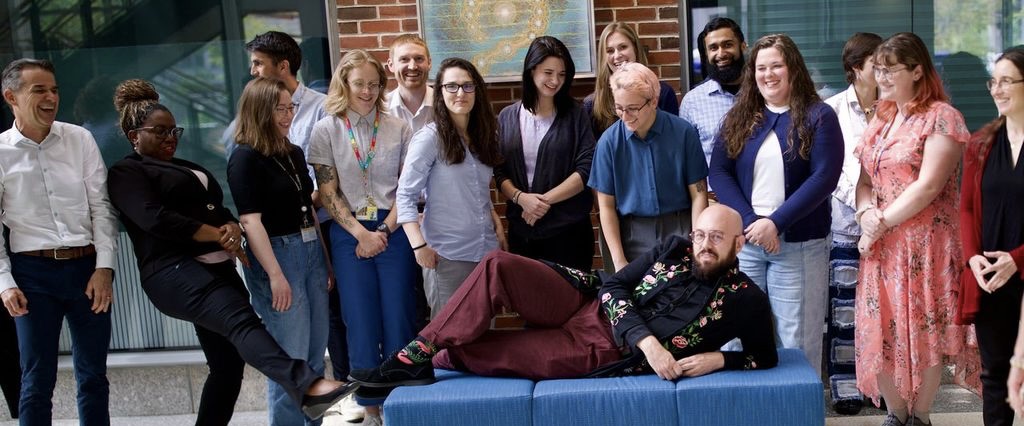About CAMRI

The Center for Advanced Microbiome Research and Innovation (CAMRI) launched in 2025 to recognize the extensive expertise in microbiome science and microbial genomics within the Institute for Genome Sciences (IGS) at the University of Maryland School of Medicine. CAMRI serves as a hub for pioneering microbiome research—bridging foundational science with translational applications to improve health outcomes.
With strength in women’s and infant’s health, CAMRI faculty study the microbiome’s role in vaginal health, sexually transmitted infections (STIs), and preterm birth, as well as the gut microbiome’s role in organ transplantation and infant health.
In addition, CAMRI researchers advocate for critical health issues. For example, CAMRI Director Jacques Ravel, PhD, has recently spoken out against the lack of regulation and clinical validation for at-home microbiome testing kits; the ethics of treating children with unproven probiotics based on these tests in a Nature story; and the importance of leveraging science to develop live biotherapeutics drugs to restore optimal vaginal microbiome. In addition, Rebecca Brotman, PhD, MPH, has advocated for a medication used in Europe to treat bacterial vaginosis (BV) to be better studied in the United States.
History
Although formally launched in 2025, CAMRI can trace its roots to 30 years earlier when researchers sequenced the first microbial genome Haemophilus influenzae at The Institute for Genomic Research (TIGR), creating the new field of microbial genomics. In 2002, CAMRI Director Jacques Ravel joined TIGR and shortly, thereafter, alongside colleagues and the FBI use genomics to determine the origin of anthrax spores mailed to several news media and government offices in 2001.
TIGR established the world’s first Microbial Sequencing Center to focus on human pathogens. In 2006, TIGR scientists used metagenomics to create and publish the first description of the human gut microbiota.
In 2007, Claire Fraser brought more than 60 TIGR employees and faculty to the University of Maryland School of Medicine and formed the Institute for Genome Sciences (IGS). That same year, NIH established the Human Microbiome Project (HMP) with the mission of generating resources to characterize the human microbiome and analyze its role in human health and disease. IGS received funding through the HMP for multiple demonstration projects. In addition, it established the HMP Data Analysis and Coordination Center under the leadership of Owen White.
The previous year, Dr. Ravel had initiated his work on the role of the vaginal microbiome in bacterial vaginosis (BV). In 2008, IGS scientists, led by Dr. Ravel, appeared in a press conference at FBI headquarters to inform the public of their genomic forensic work on the anthrax letters and to close the case.
Dr. Ravel received a Sexually Transmitted Infections Collaborative Research Center grant in 2009 to study the role of the vaginal microbiome in chlamydial infections. Five years later, the Center renewed the grant – this time so that Dr. Ravel would work to understand the role of both male and female genital microbiomes in chlamydial and gonococcal infections.
In 2019, Dr. Ravel launched LUCA Biologics focused on translating microbiome research into live biotherapeutic drugs for women’s health conditions, including urinary tract and vaginal infections, as well as preterm birth. He consulted with Seed Health to bring to market a scientifically backed vaginal probiotic to promote women’s health.

